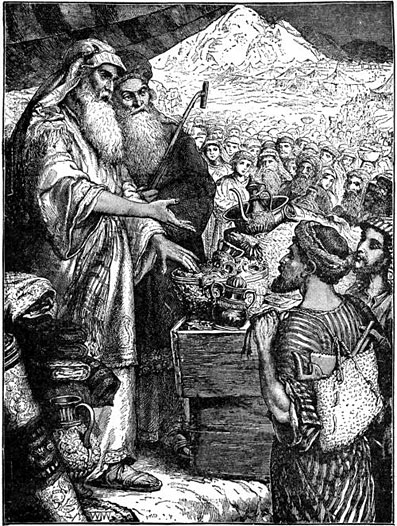Feb
1
2010
or Timeless Truth is a Tree

“Let his days be few, and let another take his office.” Psalm 109:8
The imprecatory Psalms seem to contradict the instruction of Christ to love our enemies. Ben Myers recently noted a campaign to pray for President Obama, to pray Psalm 109:8, that is:
Apparently some Southern Baptist pastors have been using Psalm 109:8 as a prayer for Obama’s death: “May his days be few; may another take his place of leadership. May his children be fatherless, and his wife a widow.” This even inspired a line of creepy bumper stickers and T-shirts that read “Pray for Obama.”
One of these pastors says: “You’re going to tell me that I’m supposed to pray for the socialist devil, murderer, infanticide, who wants to see young children, and he wants to see babies killed through abortion and partial-birth abortion and all these different things. Nope. I’m not gonna pray for his good. I’m going to pray that he dies and goes to hell.”
Continue reading
3 comments | tags: Abortion, David, Esther, Obama, oikoumene, Politics, Psalms, Solomon, Vindication, Wisdom | posted in Quotes, The Restoration Era
Feb
1
2010

Peter Leithart writes:
Solomon’s temple had windows, but they are mentioned only once, in 1 Kings 6:4. Ezekiel’s description of the visionary temple uses the word “window” twelve times.
Continue reading
Comments Off | tags: Ezekiel's Temple, oikoumene, Peter Leithart | posted in Biblical Theology, The Last Days, The Restoration Era
Aug
31
2009
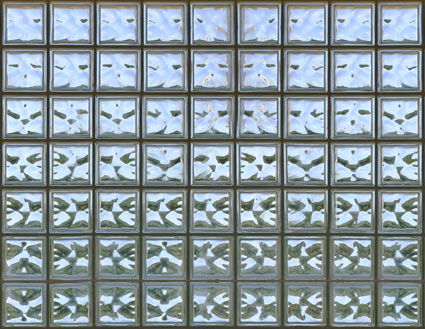
or Through a Glass Sea Darkly
“Love never fails. But whether there are prophecies, they will fail; whether there are tongues, they will cease; whether there is knowledge, it will vanish away. For we know in part and we prophesy in part. But when that which is perfect has come, then that which is in part will be done away.” 1 Cor. 13:8-10
I remember hearing a Southern Baptist pastor many years ago teaching that “that which is perfect” was the completed New Testament. He was forced to find some point in first century history that would justify his belief in the cessation of miraculous gifts like tongues. Well, to a point, I think he was right.
Continue reading
7 comments | tags: AD70, Bible Matrix, Firstfruits, oikoumene, Paul, Resurrection, Revelation, Tabernacle, Tabernacles, Tongues, Two witnesses | posted in Biblical Theology, The Last Days
Aug
13
2009

My Hebrew teacher was reading a Kabbalistic text and noted that it was the only place where he had seen an interpretation of Isaiah 6:3 that agreed with his own translation. We usually get something like this (NASB):
“Holy, Holy, Holy, is the LORD of hosts, The whole earth is full of His glory.”
The Hebrew is actually like this, (from Young’s translation):
“Holy, Holy, Holy, [is] Jehovah of Hosts, The fulness of all the earth [is] His glory.”
Continue reading
1 comment | tags: Bible Matrix, Feasts, Isaiah, Numbers 5, offspring, oikoumene, Postmillennialism | posted in Biblical Theology
Aug
11
2009
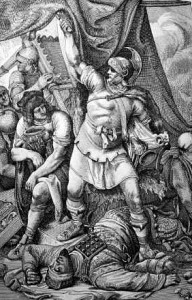
There’s a great deal of confusion concerning the place of modern Jews in God’s economy. This stems from a misunderstanding of what occurred in the first century, which is difficult to interpret if we ignore previous occurrences of the same pattern. Dispensationalists cherrypick Old Testament verses and rip them out of their historical contexts to maintain that there is a separate plan for the Jews. But even many Conservatives who understand rightly that the Old Covenant is in fact over, believe that God is still joining Jew and Gentile into one body.
Titus steps over the High Priest into the Most Holy Place.
Continue reading
Comments Off | tags: Abraham, James Jordan, oikoumene | posted in Biblical Theology, Quotes, The Last Days
Jul
6
2009
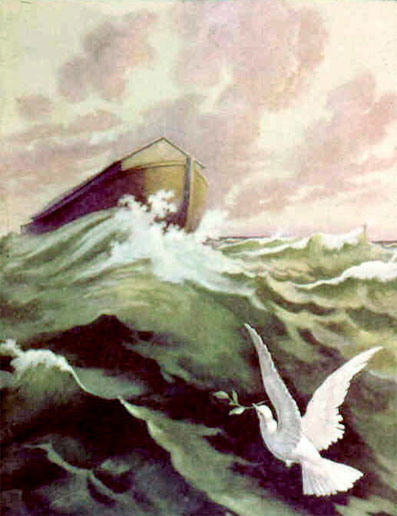
If we don’t get Genesis right, we’ll get much of the Bible wrong. In Through New Eyes (PDF), James Jordan identifies a three-level “cosmos” in the Creation, which is reflected on the earth. There is the Garden Sanctuary, the Land of Eden, and the Outlying Lands, or Garden, Land and World.
This is reflected, not only in the ark of Noah, but also in the Tabernacle. The image is dual, one in heaven and one on earth:
Continue reading
Comments Off | tags: Against Hyperpreterism, Altar, Babel, oikoumene, Paul, Tabernacle | posted in Against Hyperpreterism, Biblical Theology, The Last Days
Jul
3
2009
“Be meticulous to present yourself for the praise of God as an unashamed workman, cutting the word of truth in a straight line.” (II Timothy 2:15)
Is this verse simply teaching that if we “divide up” the Scriptures correctly, we’ll get an AWANA[1] merit badge from God? Hardly. It is flanked by condemnations of those who fight over the Scriptures to no profit, and those whose vain babblings are gangrenous.
Paul speaks of a soldier and a farmer, and then a productive workman. Paul is concerned about building saints and churches, and they are built by a straight and true cutting of the word. Like most of Paul’s statements, there is a very long, fully-loaded freight train of Old Testament history and typology right behind it, and it’s coming right at you, right now.
Continue reading
Comments Off | tags: Darius, David, Esther, Ezekiel's Temple, Nebuchadnezzar, New Jerusalem, oikoumene, Peter, Peter Leithart, Postmillennialism, Revelation, Solomon, Stigmata, Temple, Totus Christus, Worship | posted in Biblical Theology, Christian Life, The Last Days, The Restoration Era
Jun
29
2009
James Jordan’s work on the Jew-Gentile oikoumene set up in Daniel has far reaching implications.1 Peter Leithart writes:
“Yoder argues that from the time of the Babylonian captivity, the Jews developed a proto-”free church” model of community life. True in some respects. Jews didn’t have their own polity. But I’ve got doubts if that’s a fair characterization of Jews in and after the exile.
Continue reading
Comments Off | tags: AD70, Archaeology, Daniel, Esther, Exile, Hellenism, Mordecai, Nehemiah, oikoumene, Peter Leithart, Tertullian, Yoder | posted in Biblical Theology, Quotes, The Last Days, The Restoration Era
Apr
10
2009
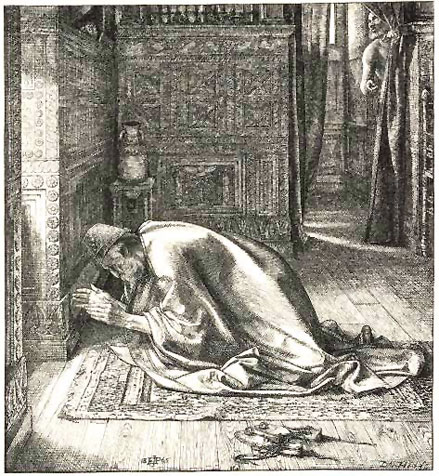
A new Adam (High Priest) ruled the wild animals of the Gentile kingdoms, but without a king this rule would be truly priestly. Daniel prefigured the nature of this new kingdom: obedience would bring persecution, and suffering as witnesses before the Gentiles would be the means of Gentile conversion. A new Israel would be the initial fulfilment of the despised, suffering priestly servant of Isaiah 53. When the Lord scattered His people for their sin, He also spread them to the four winds as witnesses to the empire.
Continue reading
Comments Off | tags: Daniel, Esther, Greek philosophy, Isaiah, Mordecai, oikoumene, Peter Leithart, Power of the Gospel, Typology, Witness | posted in Biblical Theology, The Last Days, The Restoration Era
Apr
8
2009

or Hyperpreterism: stuck on the starting line
Hyperpreterists take great delight in pointing out the inconsistencies in what they refer to as “partial” preterism. Matthew 25 is a good example. If we are going to (rightly) interpret Matthew 23 and 24 as referring to the destruction of centralised worship (the old age) and the beginning of a new age of righteousness, surely Matthew 25 is within the same context?
On this one, I agree with the hypers. Matthew 25 is fulfilled… Continue reading
Comments Off | tags: Atonement, David Chilton, oikoumene, Postmillennialism, Revelation, The flood | posted in Against Hyperpreterism, The Last Days







